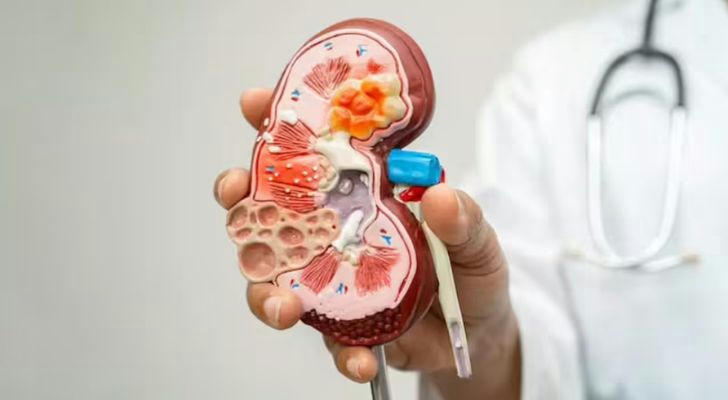Silent Signals and Smart Strategies: Early Kidney Failure, Precautions, and Survival Outlook
When kidneys falter, they rarely sound an alarm. Instead, they whisper through subtle shifts in how you feel and function. Recognizing those early cues, taking the right precautions, and understanding the road ahead can mean the difference between manageable care and irreversible decline.

What Is Early Kidney Failure?
Early kidney failure, technically stage 3 chronic kidney disease (CKD), occurs when filtering capacity dips below half of normal. Waste products and extra fluid begin accumulating, but symptoms often overlap with everyday complaints—making early detection a challenge.
Early Warning Signs
1. Unrelenting Fatigue
Damaged kidneys produce less erythropoietin, the hormone that stimulates red blood cell production. The result is mild anemia and constant tiredness, even after a good night’s sleep.
2. Frequent, Foamy, or Dark Urine
Early CKD can let protein leak into urine (proteinuria), creating froth or foam. You may also urinate more often—especially at night—as the body fights to eliminate excess fluid.
3. Morning Puffiness and Evening Swelling
A telltale puff in your eyelids after waking or swollen ankles by day’s end signals fluid balance issues as kidneys struggle to flush out water and sodium.
4. Persistent Itching and Muscle Cramps
Electrolyte imbalances—particularly rising phosphorus and dropping calcium—can lead to itchy skin and painful leg or foot cramps.
5. Brain Fog and Poor Concentration
Toxin buildup in the bloodstream may affect cognitive function, making it harder to focus, remember details, or solve simple problems.
6. Loss of Appetite and Nausea
Subtle chemical shifts can dull taste buds and trigger mild nausea, making food less appealing and leading to unintended weight changes.
7. Rising Blood Pressure
Kidneys help regulate blood pressure via fluid balance and hormone release. Worsening CKD often brings stubborn hypertension that resists standard treatments.
Because these symptoms mimic common conditions, routine screening—especially if you have diabetes, high blood pressure, or a family history—is crucial to catch trouble before it accelerates.
Precautions: Slowing the Slide
Once early CKD is identified, proactive steps can preserve remaining kidney function and protect overall health:
Manage Blood Pressure and Blood Sugar
Aim for a blood pressure under 130/80 mm Hg and keep glucose levels on target. Medications like ACE inhibitors or ARBs can shield your kidneys from further damage.
Adopt a Kidney-Friendly Diet
Reduce sodium intake, limit high-protein portions, and focus on fresh fruits, vegetables, and whole grains. Diets such as DASH or Mediterranean are excellent models.
Stay Active and Maintain a Healthy Weight
Regular exercise helps control blood pressure, blood sugar, and cholesterol—key factors in kidney health. Even a daily 30-minute walk makes a difference.
Quit Smoking and Limit Alcohol
Smoking narrows blood vessels, worsening hypertension and kidney damage. Alcohol in excess raises blood pressure and can harm kidney cells.
Use Medications Wisely
Avoid overusing over-the-counter pain relievers such as NSAIDs, which can impair kidney function. Always discuss any supplements or new prescriptions with your healthcare provider.
Regular Monitoring
Quarterly checks of kidney function (eGFR) and urine protein keep you and your doctor informed of any changes.
Survival Outlook: What the Numbers Show
Kidney failure becoming overt (stage 5 or ESRD) means choosing between dialysis and transplant. Survival rates vary:
Dialysis
Five-year survival for hemodialysis patients hovers around 40 to 42 percent, while peritoneal dialysis patients fare slightly better, at about 50 to 52 percent. Despite challenges, ongoing advances have kept survival rates stable over the past decade.
Kidney Transplant
Receiving a donor kidney dramatically improves life expectancy. Five-year survival after transplant is roughly 80 to 85 percent for both deceased and living donor grafts.
Comprehensive Care
Patients who combine strict medical management, healthy lifestyle changes, and psychosocial support often experience longer, fuller lives—even on dialysis.
Moving Forward with Confidence
Early kidney failure need not be a countdown to crisis. By recognizing subtle symptoms, embracing proven precautions, and understanding realistic outcomes, you can steer your health journey with knowledge and optimism. Schedule regular screenings, partner closely with your healthcare team, and commit to lifestyle choices that guard your kidneys—so you can enjoy many more years of clarity, energy, and well-being.
